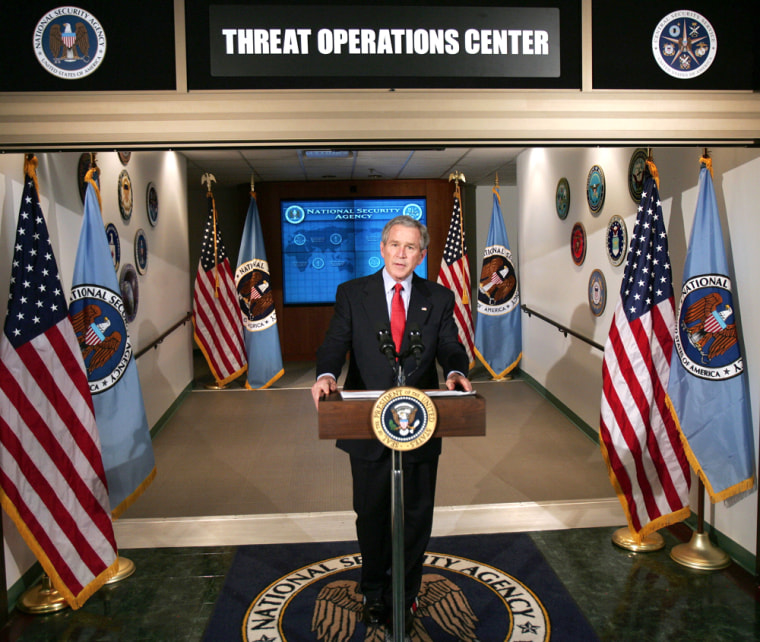A federal judge Thursday ordered the Justice Department to respond within 20 days to requests by a civil liberties group for documents about President Bush’s domestic eavesdropping program.
The ruling was a victory for the Electronic Privacy Information Center, which sued the department under the Freedom of Information Act in seeking the release of the documents.
U.S. District Judge Henry Kennedy ruled that the department must finish processing the group’s requests and produce or identify all records within 20 days.
“Given the great public and media attention that the government’s warrantless surveillance program has garnered and the recent hearings before the Senate Judiciary Committee, the public interest is particularly well served by the timely release of the requested documents,” he said.
Kennedy also ordered the department to give the group a document index and declaration stating its justification for withholding any documents within 30 days.
The Washington-based center sought the documents from four Justice Department offices, including the office of the attorney general, after the New York Times first reported the eavesdropping program’s existence Dec. 16.
Key role in NSA program
It argued that the department played a key role in authorizing, implementing and overseeing the program, which involves surveillance by the National Security Agency.
Records sought by the group include an audit of the program, a “checklist” guide used to determine whether an individual’s phone or e-mail messages could be monitored, documents showing how information gleaned through eavesdropping had been used, and other legal opinions about the program.
The program, adopted by Bush after the Sept. 11 attacks, allows the monitoring of international communications into and out of the United States of persons linked to al-Qaida or related terrorist groups.
Disclosure of the program has sparked criticism from Democrats and some Republicans, with many lawmakers questioning whether Bush overstepped his authority. Civil-liberties groups have filed lawsuits challenging the program’s legality.
The Justice Department had told the electronic privacy center that it would process its requests for documents quickly, but never gave an anticipated completion date.
A spokesman said Justice Department lawyers were reviewing the judge’s ruling.
